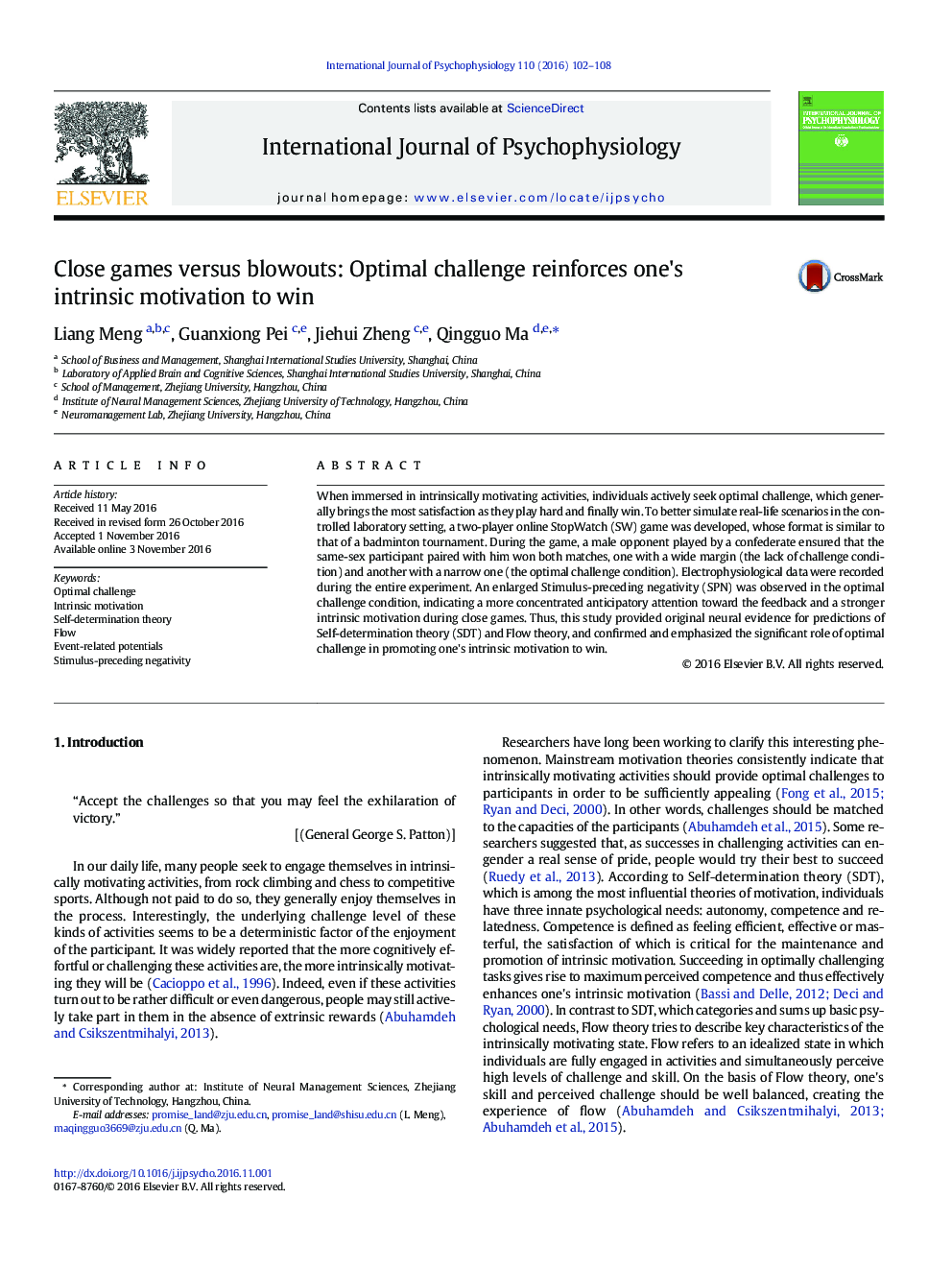| کد مقاله | کد نشریه | سال انتشار | مقاله انگلیسی | نسخه تمام متن |
|---|---|---|---|---|
| 5042388 | 1474386 | 2016 | 7 صفحه PDF | دانلود رایگان |
- The positive effect of optimal challenge on one's intrinsic motivation to win is directly examined in an EEG experiment.
- To simulate social interactions, a two-player StopWatch game was developed, whose format mimics that of a badminton match.
- The amplitude of the SPN is suggested to reflect one's subjective expectancy rather than the objective expected value.
When immersed in intrinsically motivating activities, individuals actively seek optimal challenge, which generally brings the most satisfaction as they play hard and finally win. To better simulate real-life scenarios in the controlled laboratory setting, a two-player online StopWatch (SW) game was developed, whose format is similar to that of a badminton tournament. During the game, a male opponent played by a confederate ensured that the same-sex participant paired with him won both matches, one with a wide margin (the lack of challenge condition) and another with a narrow one (the optimal challenge condition). Electrophysiological data were recorded during the entire experiment. An enlarged Stimulus-preceding negativity (SPN) was observed in the optimal challenge condition, indicating a more concentrated anticipatory attention toward the feedback and a stronger intrinsic motivation during close games. Thus, this study provided original neural evidence for predictions of Self-determination theory (SDT) and Flow theory, and confirmed and emphasized the significant role of optimal challenge in promoting one's intrinsic motivation to win.
Journal: International Journal of Psychophysiology - Volume 110, December 2016, Pages 102-108
